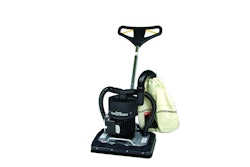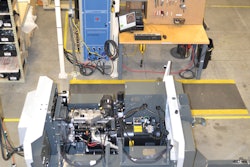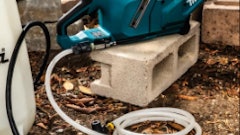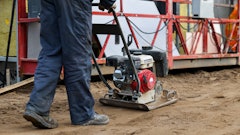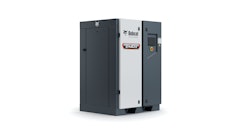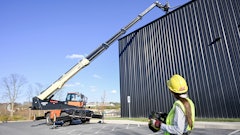Normally, I do not report on activities in Washington, D.C., until we have the certainty that only comes when the President of the United States signs a bill from Congress into law. The developments of the last several weeks that came together on Tuesday night, Dec. 15, in an agreement between Congressional leaders and the White House are so significant and important to the equipment rental industry that I am making an exception to that rule.
Note that none of the provisions I will discuss and summarize have been voted on by either the House of Representatives or the Senate, and until that happens and the President signs the bill(s), none of this becomes the law of the land.
Late on Dec. 15, Congressional leaders announced an agreement on two important pieces of legislation that will begin moving through the process of final passage over the next several days. The first is the tax bill that contains several provisions that are of paramount importance to American Rental Association (ARA) members. The other piece of legislation is the Omnibus Appropriations bill that will fund federal agencies for the remainder of the 2016 fiscal year, which ends on Sept. 30, 2016.
Tax Provisions
-
Section 179 is extended permanently with an annual expensing level of $500,000. The ability to expense under Section 179 begins to phase out on a dollar-for-dollar basis when annual purchases of qualified equipment reach and exceed $2 million. Both the $500,000 expensing level and $2 million phase-out level are indexed for inflation. This provision also is retroactive to Jan. 1, 2015. This provision will provide an estimated $77 billion in tax relief over the next 10 years to small businesses using Section 179.
-
Bonus depreciation is extended for property acquired and placed in service during 2015 through 2019 with an additional year for certain property with a longer production period. The bonus depreciation percentage is 50 percent for property placed in service during 2015, 2016 and 2017, and phases down to 40 percent in 2018 and 30 percent in 2019. The provision continues to allow taxpayers to elect to accelerate the use of alternative minimum tax (AMT) credits in lieu of bonus depreciation under special rules for property placed in service during 2015. The provision modifies the AMT rules beginning in 2016 by increasing the amount of unused AMT credits that may be claimed in lieu of bonus depreciation.
-
A two-year moratorium on the 2.3 percent excise tax imposed on the sale of medical devices. The tax will not apply to sales during calendar years 2016 and 2017.
Omnibus Provisions
-
A one year moratorium on the annual fee on health insurance providers in Section 9010 of theAffordable Care Act (ACA). This fee is commonly known as the Health Insurance Tax (HIT)
-
A two year delay on the imposition of excise taxes on high-cost health insurance plans of ACA. This excise tax is commonly referred to as the Cadillac Tax.
-
A repeal of the 40-year-old ban on crude oil exports from the United States.
-
Provisions to roll back Department of Labor (DOL) regulations that make it harder for employers to use the H2B visa program.
-
A provision to stop the National Labor Relations Board (NLRB) harmful anti-business agenda by prohibiting electronic voting regulations that could promote coercive tactics and privacy violations in union elections.
I think it is safe to say that the provisions I have summarized here add up to a huge win for ARA members who have worked hard to advocate on all of these issues. If we also consider the recent passage of the five-year highway bill, we can say that all of the important issues ARA members have taken to Capitol Hill during the Legislative Caucus over the past three years have been addressed by Congress.
For more about congressional developments and how they affect rental companies...




